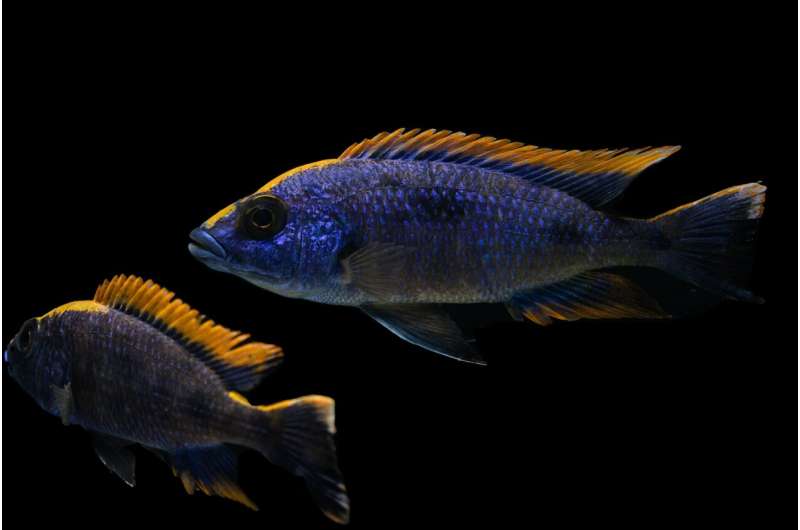November 9, 2022 report
Cichlid fish that brood in their mother's mouth sometimes get eaten

A pair of researchers at Central Michigan University has found that cichlid fish that brood their young in their mouths eat up to 40% of their offspring. For their paper published in the journal Biology Letters, Jake Sawecki and Peter Dijkstra studied multiple specimens of the African fish.
Prior research has shown that cichlid fish brood their young in their mouths for up to two weeks after their eggs are fertilized. There has also been some evidence suggesting that sometimes, the mothers eat their young before they have a chance to mature and leave. In this new effort, the researchers took a closer look at the fish to learn more about their reproductive habits.
In their lab, 80 females laid eggs that were fertilized by males. After fertilization, the researchers observed how the brooding proceeded. As expected, the mothers kept their offspring in their mouths for up to two weeks. As they did so, the researchers noted that the mothers did not eat regular food. They also found the mothers behaved in ways the researchers describe as stressed. The researchers dissected some of the mothers showing different levels of stress and found higher levels of stress chemicals in those fish who behaved in more stressed-out ways.
The researchers also found that on average, the mothers ate approximately 40% of their offspring and that 93% of them had eaten at least some of their young. They also found that those mothers who appeared to be more stressed tended to eat more of their young.
The researchers suggest the behavior demonstrated by the fish, called filial cannibalism, has been observed in many kinds of animals. They describe it as an adaptive strategy. They note that eating one's offspring might seem to reduce their reproductive success, but it is offset by the health benefits. They note that in addition to the nutrients they get from their offspring, the mothers also get an antioxidant boost, which gives them the energy they need to spawn again in just a few months.
More information: Jake Sawecki et al, Mothers modify the cost of reproduction by dynamic changes in antioxidant function and filial cannibalism, Biology Letters (2022). DOI: 10.1098/rsbl.2022.0319
Journal information: Biology Letters
© 2022 Science X Network





















